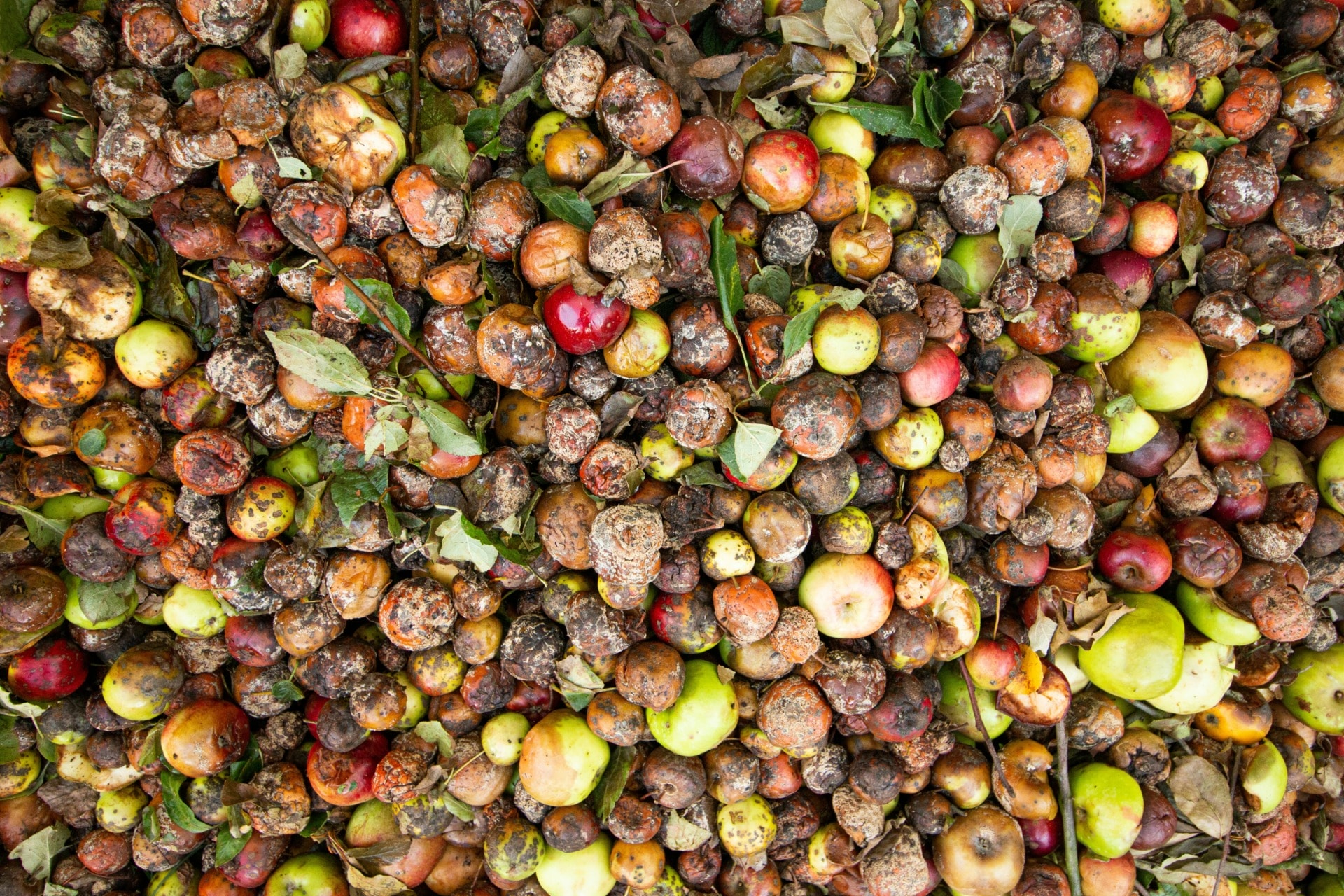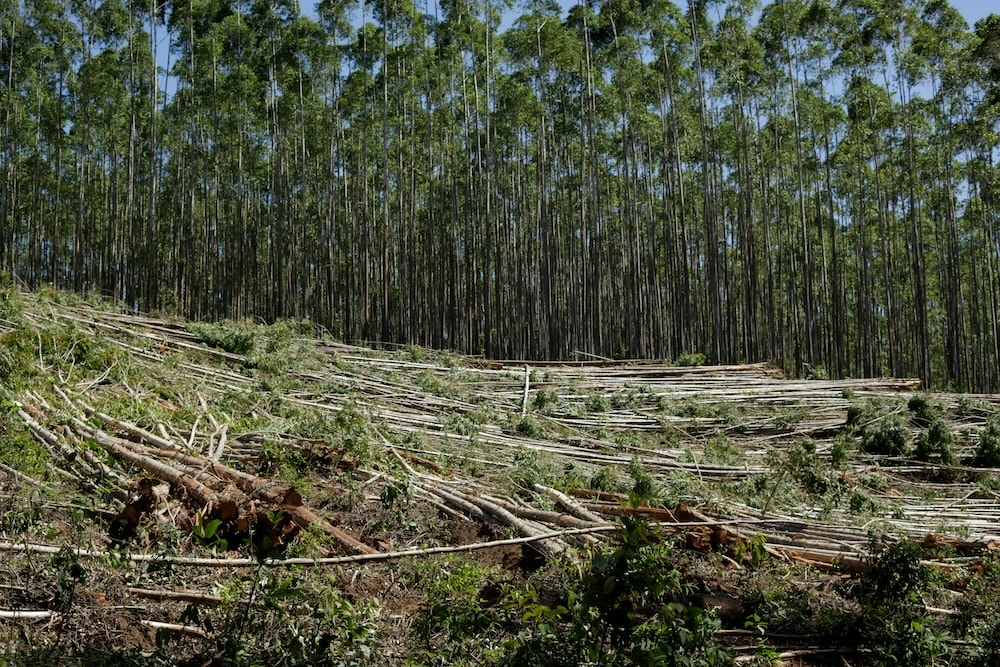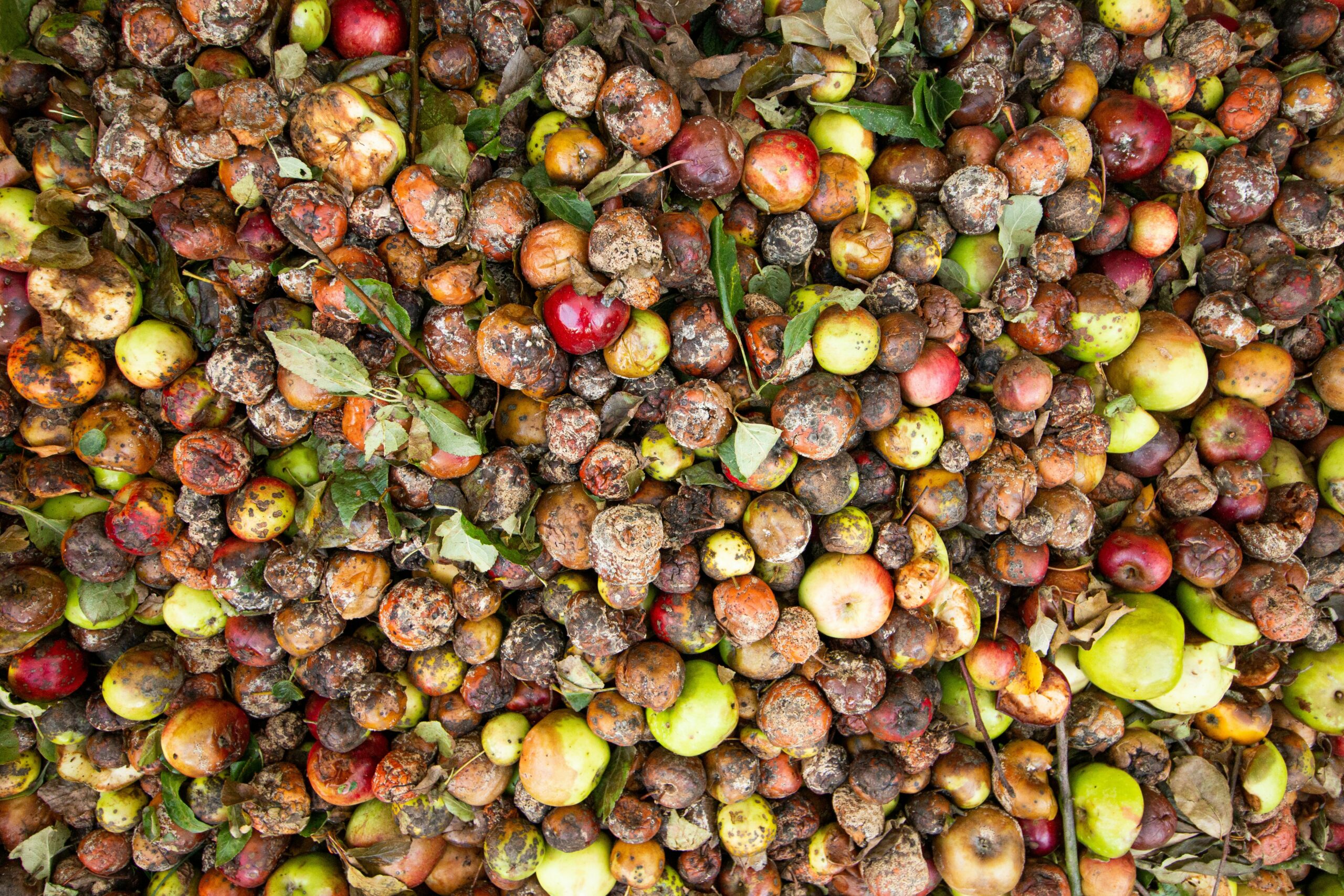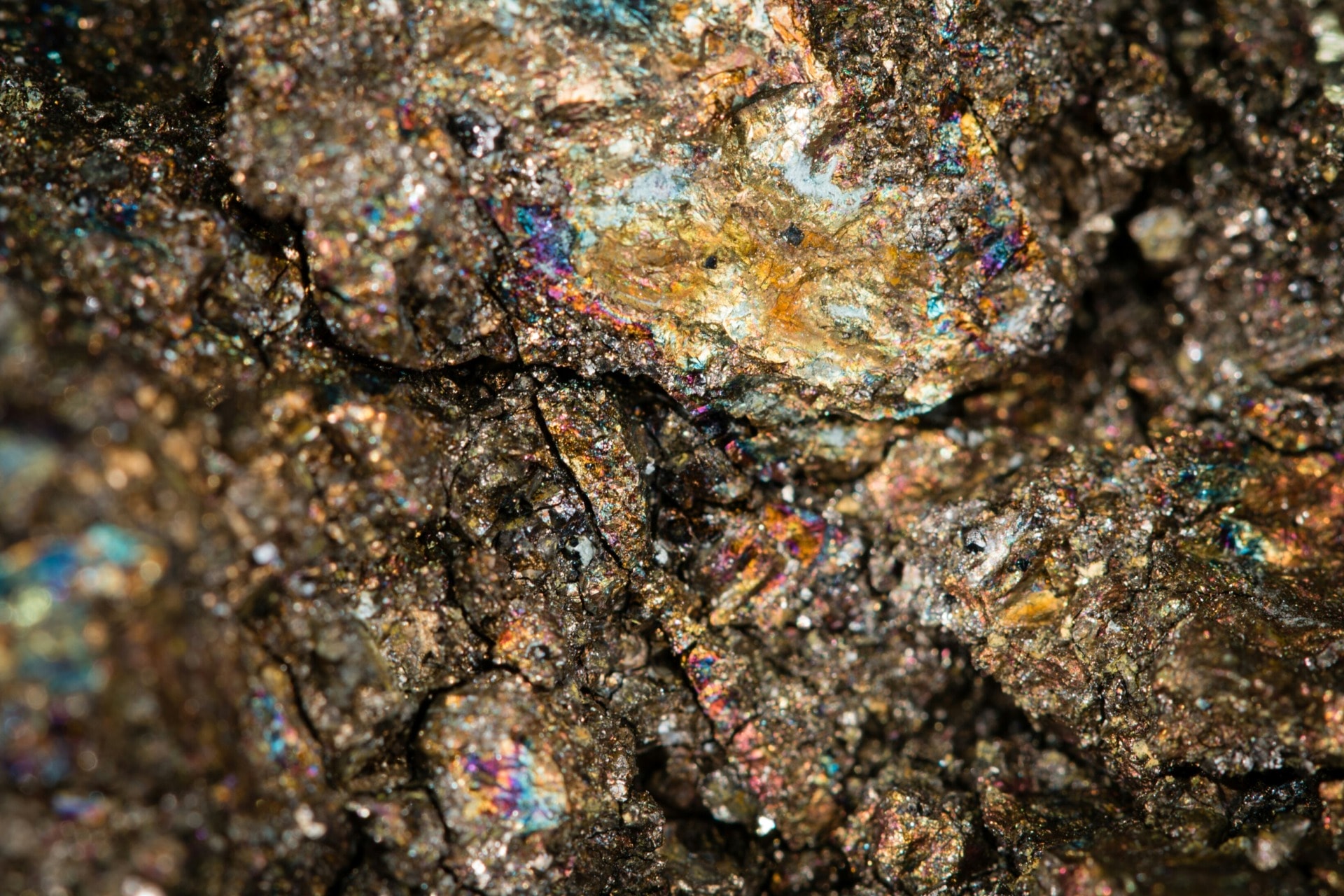Around 88 million tonnes of food is wasted annually in the EU. All actors along the supply chain contribute to food waste, from the farmers to retailers and ultimately the consumers. Opaline aims to help farmers in reducing food waste. It produces high-quality juice that connects people to nature. B Corp certified since 2015, Sofia de Meyer, Opaline CEO, shares her sustainability story with us.
Q. What is Opaline?
Sofia de Meyer: Opaline is a Swiss company that produces juices and lemonades. Our mission is to offer an alternative to the way we consume and valorize fruits. We would like to address the current problem where fruits with the right size and look are the first choice of purchase so they go to the supermarket. Anything that does not match those criteria ends up as waste. Opaline was founded in order to reduce that waste by making high-quality products from fruits that are otherwise disregarded and all our products are natural. We try to reconnect people with nature so we only use fresh fruits and we do not add anything to our juice. By doing so, not only we can provide some products that have a high quality in the market, we also contribute to the economy of the farmers because otherwise, they cannot sell these fruits. In conclusion, we aspire to valorize the work of the land and to reconnect our community with nature.

In the photo: Sofia de Meyer Photo Credit: Opaline
Q. Can you elaborate the sustainability practices at Opaline?
SDM: As I previously mentioned, we juice fruits that are otherwise disregarded so we reduce waste. We also work with farmers that have an integrated approach to agriculture. Integrated here means a great respect for the land and what they put in the land. We also try to limit our carbon emission by limiting the transportation in our supply chain and distribution. All our sources are within limited range of 35 km and we do not export our products.
In terms of production, we have a solar-powered factory. So we use solar energy to press the fruits. The production process is a quite complicated process because we have to work with what nature gives us while trying to make high-quality product each time. During that the production, we work closely with the farmer because we only use fruits that are in season; we also need to take into consideration the weather condition, is it the best time to press the fruit because we don’t add any artificial taste enhancement so the product has to capture all that the nature gives. We only add sugar in some of our juices because it’s the nature of the recipe otherwise no sugar for most products. We really have to use the right variety of fruits each time which is unlike the common industrial process.
Lastly, in the production process, we pasteurize our juices but lightly. Often people ask why do we pasteurize juice because we prefer fresh juice. We pasteurize our juice because fresher juice requires refrigerated line, refrigerated transport, and fridge at the point of sales, which consumes a lot of energy. Generally they also only last 3-6 days. With fresh juice, there will be a lot of waste because the shop owner has to throw away the products that are still on the shelf but cannot be consumed anymore. Remember, our mission is to limit waste so we pasteurize our juices because from it is better for the ecology. We do not need fridges, we can store our juices in normal condition and they have 1 year of shelf life. This is our other strategy to reduce waste because when cafe owners buy two boxes of our juices, they have a whole year to sell them.
Opaline also cares about our people. We are B Corp certified company mainly because our company is organized on an equal structure, there is no hierarchy and we are all integrated equally into the system. All employees are encouraged to develop their talents and to contribute positively to the ecosystem. More importantly, everybody has an access to the capital of the company which means 85% of the capital is owned by people who work in the company. As far as beyond the company concern, all of our distribution network, such as store owner, restaurant owner, and cafe owner; we sustain their economy in the sense that we work with them to help them develop our brand. We accompany them to present the product and we also help them to understand the value of our product as well as our mission as a company, this is also the message that they can later communicate to the consumer.
Our objective is to build a community of people that are aligned with the mission and the value of our company. For us, what we do is not just a purely economic discussion ” I give you a juice a the right price, please sell it and that’s it”. We go beyond that and we talk about the impact that all of us can have on the circular economy. The more juice that we sell, the more fruits that we can buy that are otherwise disregarded and become waste. So in term people, we consider the whole network as a part of our company. There is no border, we don’t stop at Opaline and we go beyond our company.

In the Photo: Opaline Juices Photo Credit: Opaline
Q. What inspired you to adopt a sustainable business model?
SDM: We’re six people who now work for Opaline and we all previously worked at a multinational structure. Across the whole team, the feeling we have is that we want to change something in our life. We realized that big companies only care about economic performance and, for us, that doesn’t make sense anymore. We wanted to contribute to a company mission that actually addresses everything, not just the economy but also environmental and social problems. We want to do something positive, so this is what we call as a positive economy. We joined Opaline’s movement and we invest our time in something that makes sense rather than just work 9 to 5 at a corporation with a strict hierarchy where you follow the order and you have little power to affect the company. We want to do more than that, we want to share an idea, to build the community together and to make progress in what we believe is a better economy.
Q. Why did you decide to work in the food industry and why juice specifically?
SDM: Because it was one of the problems that we identified. There are many different issues that you can think of, for example, we can do something different like textile industry and many other things. But we live in the middle of agricultural land, so we’re directly concerned with what was happening here and that was the first activity that we decided to develop.
Q. When did you obtain the B Corp certification and how was the process?
SDM: We got certified 3 years ago. The first step was difficult and very detailed but the more difficult it was the better it was actually for us. The certification has attempted to look at every single aspect of sustainability. The more we worked, the more we realized how credible that certification was. There are many certifications on the market now but they all seem to focus on one aspect and not necessarily the whole business. B Corps looks at the whole aspect of the business, all the different impacts that you have, either positive or negative. So the process was very complicated but it was the sign of credibility. Also, what we really like about B Corp is that it is an ongoing process, when you’re certified there are aspect you haven’t really looked at, it doesn’t mean they won’t be certified but it means that you can fix them by making 3 to 5 years plan of how much further do you wanna go. This is a great tool because it monitors your progress so you can see your improvement on the segments that, maybe, you haven’t thought about.
In terms of the strategy, there was no strategy for us to be a B Corp company because our core value is aligned with B Corp. We did not establish a business then we decided to add these values, we had values and we translated them into a business. At Opaline, value comes first and business comes next. B Corp was just a prolongation of who we are. We didn’t have to make a decision whether we want to be a B Corp or not, for us we already have a view of B Corp so let’s just see if we can pass the test. So we did the certification process and we got certified.
It was natural for us to do it. I think for B Corp and for Opaline today, the challenge is building the community, the B Corp community. Nationally, to start with, in Switzerland, we have B Lab correspondents who accompany companies during the process but it’s a long process and I think we have to help the movement. We have to help to get more company certified because once a company is certified, we as certified B Corp are comfortable working with them since we know we have a shared value.
And beyond the border, it should be a movement where you can actually start an exchange with other companies anywhere else in the world and you can share their challenges and what value they need to play first because each country is different.
Then you can start to combine ideas and expertise. The aim is to build a better economy which I think it has to be done in collaboration. There is a long journey to go as a B Corp but it is an exciting one. We need to work on building the community and the collaboration because being certified alone in your corner is good but I don’t think it would accelerate the economic transition. We need to be in contact with other B Corp companies, we need more of them, we need the whole movement to start going forward.

In the Photo: Opaline Product Photo Credit: Opaline
Q. How do you measure your internal and external impact?
SDM: Today we have a rise of companies that are analyzing or addressing other aspects than just financial aspect. So far it is always easy to measure finance, you just look at the profitability, the growth, the financial performance, you can thick all the boxes that are easy to measure. But the trend now is that companies like Opaline actually look at other aspects. We talk about reducing waste, we talk about people. I can tell you at Opaline we have no sick leave, nobody is ever ill because we’re happy at work. So the thoughts we have are extraordinary based on the team of 6 people and we have a whole community following us behind. The problem is so far this movement has moved faster than performance indicator has been able to do. We try to develop our performance indicator. We send interview and questionnaire to try to see how we could quantify all of these intangible benefits.
Another thing that can be used in order to mimic B Corp certification in term of indicator would be the UN Sustainable Development Goals. We should try to see how we can actually have a parallel between the two and once we establish that, we’ll have a better way to measure the impact. But this is going to be very hard. For example, how can you measure happiness at work, yes you can look at the sick leave and how it cost the company money and individual money. But that will be very comprehensive. How do we measure waste in food? Waste is very hard to assess because we don’t have a statistic of how much food is wasted and that requires all the farmers to register all their crops they have every year, what is sold and what is wasted. It’s going to take a long time to make it happen. It is complicated but we have to do it.
As a company, if we want to accelerate the movement, we need to show that what we do have an impact that can be measured. We’re trying to have better tools to measure the impact but it’s going to take some time to get there. I believe it’s not just what happening here, I think other countries have same problems and they start to look at ways to address all these issues that are intangible.
Related article: “SUSTAINABLE AGRICULTURE IS THE KEY TO ENDING HUNGER” by Paul Guenette
Q. How does the UN SDG play in your business model?
SDM: The UN SDG is a very good guidance. It’s a great sign that the planet as a whole has an intention to move toward something that makes more sense, not just pursuing the economy. As far as Opaline concerns, we need to interpret SDGs within Swiss environment and economic situation. Every country has a different situation, farming in swiss is different with farming in Tanzania. Well in Tanazia the SDG probably focus on something that is very basic, economic drive, but we’re already in another SDG. The SDG is an umbrella and it’s up to us to interpret them according to the market where we operate. This again shows how complex assessing the impact will be for the SDG because it’s a matter of national interpretation and multiply that across the planet then you realize the challenge that we’re gonna have. I think B Corp could help in that process by looking at how the match some SDG with their criteria. Once they’ve done that, we’ll have a better tool to measure the impact. So the SDG have to work with other labels, other movements in order to accelerate the progress.
Q. How do you aspire to bring more positive impact to the food industry in Switzerland and sustainability movement in general?
SDM: So far Opaline will stay national because exporting our juices makes no sense. If we were to go beyond border it would be a structure of either consultancy, franchise, license, but it would be to use our experience to help others in the country to valorize their agriculture.
And maybe one day we’ll activate it. because we have gained some experience by now so why not sharing it with other people. That will be our expansion, not with the product but with the business skills.
Within Switzerland, in the near future, we’re planning to operate in other segments. So far we create juices, we are planning to work on other products in the food industry.
Editor’s Note: The opinions expressed here by Impakter.com columnists are their own, not those of Impakter.com














